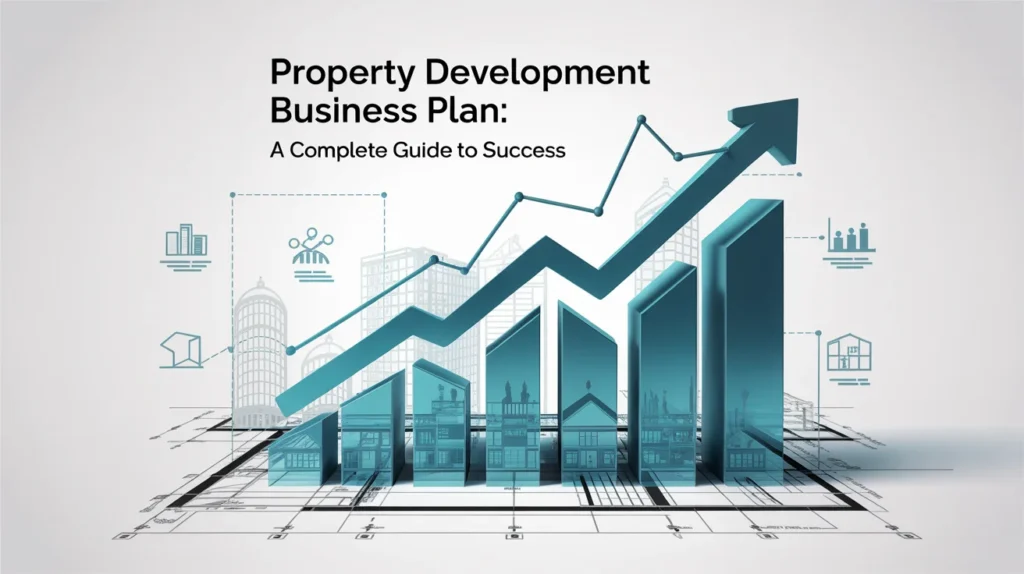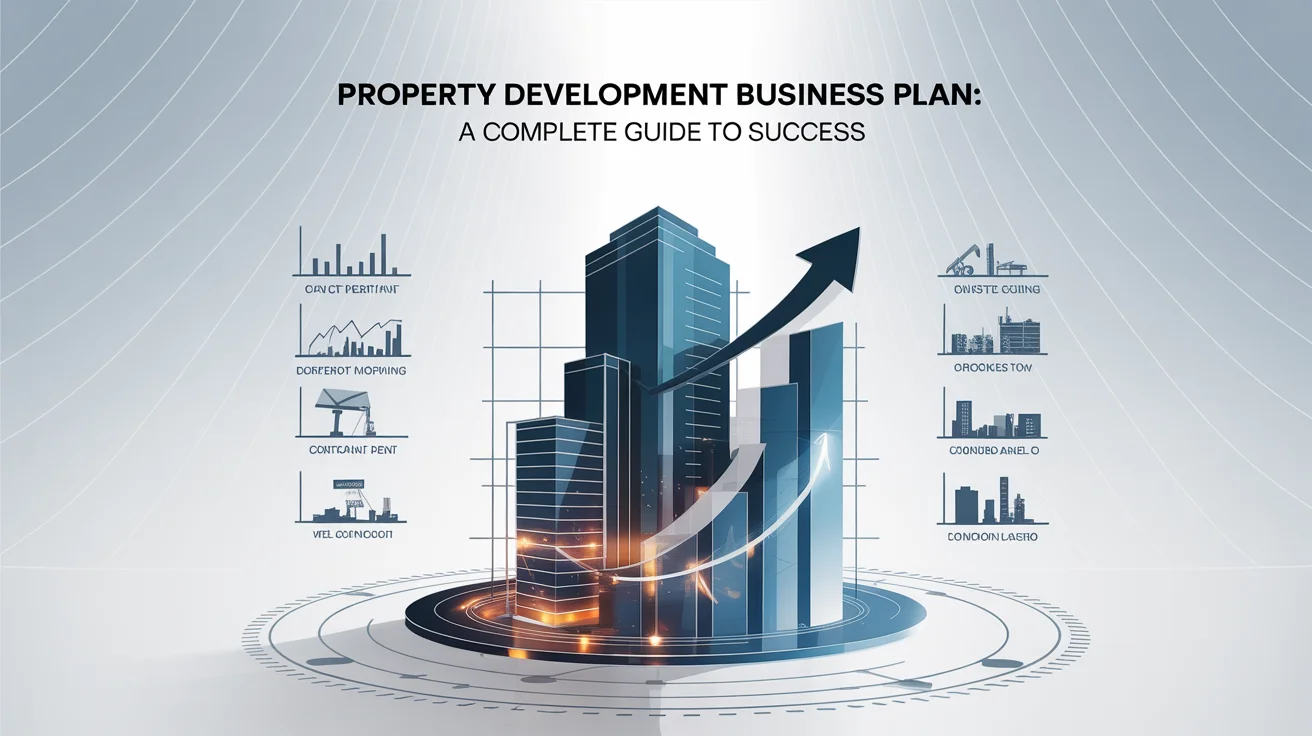A solid property development business plan is the foundation for a successful real estate development venture.
Whether a beginner or an experienced developer, a well-structured plan helps you clearly define your objectives, attract investors, and manage risks effectively.
This article will guide you through the essential steps and elements of a property development business plan, ensuring your project is on the path to profitability.
Understanding the Basics of a Property Development Business Plan
Before diving into the detailed planning, it is crucial to understand what a property development business plan entails. This plan outlines your real estate project’s purpose, strategies, and financial forecasts.
A good business plan describes the development concept and evaluates market conditions, project costs, timelines, and potential returns. It acts as a roadmap, allowing you to monitor progress and make informed decisions.
- Clearly defines project goals and scope.
- Provides market analysis and competitive landscape
- Detailed financial projections, including costs and revenue
- Outlines timelines and development phases
This structure helps keep every stakeholder on the same page and minimizes surprises during development.
Key Components of a Property Development Business Plan
To craft an effective business plan, focus on the following components that provide a comprehensive overview of your project:
Project Description: Explain the type of property you want to develop, such as residential, commercial, or mixed-use. Describe the location, size, and design concepts that make your project unique.
Market Research: Conduct detailed research on the local real estate market. Understand demand, supply, buyer profiles, and price trends. This data supports your pricing and sales strategy.
Financial Plan: Include estimated costs for land acquisition, construction, permits, marketing, and contingency funds. Forecast revenue from sales or rentals, and calculate expected profits or losses.
Risk Analysis: Identify potential risks, such as market downturns, construction delays, or regulatory hurdles, and plan mitigation strategies to minimize their impact.
- The project type and concept are explained clearly.
- Local market demand and competitor analysis included
- Detailed budget estimates and income projections
- Risk factors are assessed with contingency plans.
These elements ensure your business plan is realistic and convincing to investors and lenders.
Writing a Clear and Detailed Executive Summary

First, your executive summary should present a quick yet powerful snapshot of your project. It is the stakeholders’ first impression, so clarity and confidence matter. A few strong paragraphs can set the tone for your property development business plan.
This section should introduce your development idea, including the property type, location, and overall vision. Please explain why this project makes sense in the current market and how it meets existing demand. In addition, touch briefly on the financial highlights, such as expected ROI and estimated costs.
A well-crafted executive summary builds credibility and trust. You must show that you have researched thoroughly and are fully prepared. However, avoid overloading this section with too many details because the plan covers them later.
Crafting a Solid Market Analysis
Understanding the local property market is essential before committing to any development. Your pricing strategy, property design, and target audience may miss the mark without accurate insights. Therefore, this section should be backed by real data, not assumptions.
Moreover, it’s essential to evaluate the competition. Identify similar developments in the area and study their pricing, occupancy rates, and unique features. This will allow you to position your project more effectively and avoid oversaturation.
In addition, monitor broader economic indicators like interest rates, job growth, and infrastructure development. These factors significantly influence real estate demand and should shape your planning decisions.
Detailed Financial Plan and Budget Forecast
Managing finances is the backbone of successful property development. Your financial plan must be precise and transparent, showing all cost components and expected revenue streams.
Begin with land costs, then estimate construction expenses, legal fees, permits, and marketing budgets. Don’t forget contingency reserves for unexpected expenses. Project your sales or rental income and calculate the return on investment (ROI).
- Breakdown of acquisition, construction, and soft costs
- Contingency funds are allocated to reduce financial risk.
- Revenue forecast based on realistic market prices
- Profitability indicators like ROI and cash flow are presented.
A clear financial plan not only guides your spending but also builds confidence among stakeholders.
How to Outline a Development Timeline and Milestones
An effective business plan includes a detailed timeline outlining each development phase. This plan helps track progress and manage deadlines, reducing the chance of costly delays.
Divide the project into site acquisition, design, permits, construction, and marketing stages. Assign realistic timeframes and critical milestones for each stage.
- Phased schedule from acquisition to project completion
- Key milestones like permit approvals and construction starts
- Built-in buffers for potential delays
- Continuous progress monitoring is suggested.
This timeline keeps the project organized and ensures smoother execution.
Risk Management and Mitigation Strategies
Every property development project faces risks. A good business plan must identify potential problems and provide solutions. This proactive approach protects your investment.
Risks may include market fluctuations, construction cost overruns, or regulatory changes. Your plan should specify how you will monitor risks and react promptly.
- Market risks are evaluated with fallback pricing strategies.
- Construction risks minimized with reliable contractors.
- Regulatory risks are managed through compliance and permits.
- Contingency funds are reserved for emergencies.
Such planning helps reduce surprises and ensures project resilience.
Marketing and Sales Strategy for Property Development
To ensure the success of your project, it’s crucial to design a clear marketing and sales strategy. First, define your target audience based on the type and location of your property. After that, choose marketing methods that align with your audience’s preferences.
Furthermore, timing plays a vital role in your campaign. Initially, while the property is under construction, you can start with teaser campaigns to create buzz. Subsequently, you will use digital platforms, local agents, and open house events to generate serious leads..
- Target market segments identified
- Multi-channel marketing campaigns planned
- Sales timelines aligned with construction completion
- Post-sale services or warranties included
Conclusion
A strong property development business plan lays the foundation for a successful real estate project. It helps you define clear goals, understand the market, manage finances, and reduce risks. With the proper structure and strategy, your plan becomes a powerful tool to attract investors and keep your project on track.
Whether you’re new to property development or scaling your business, building a clear, realistic plan can make all the difference. Plan brilliant, stay organized, and turn your vision into reality.
Frequently Asked Questions:
Q1: What is a property development business plan?
A: It’s a structured document that outlines your real estate development goals, strategies, costs, risks, and expected returns.
Q2: Why is a business plan important in property development?
A: It helps you stay organized, attract investors, manage risks, and ensure the project’s financial viability.
Q3: What should a property development business plan include?
A: You should include key sections like project overview, market analysis, financial forecast, development timeline, and risk management.
Q4: How do I fund my property development project?
A: You can use personal savings, bank loans, joint ventures, or attract private investors through a solid business plan.
Q5: Can a beginner make a successful property development plan?
A: Yes, with proper research, expert advice, and planning tools, beginners can create a strong and realistic development plan.



